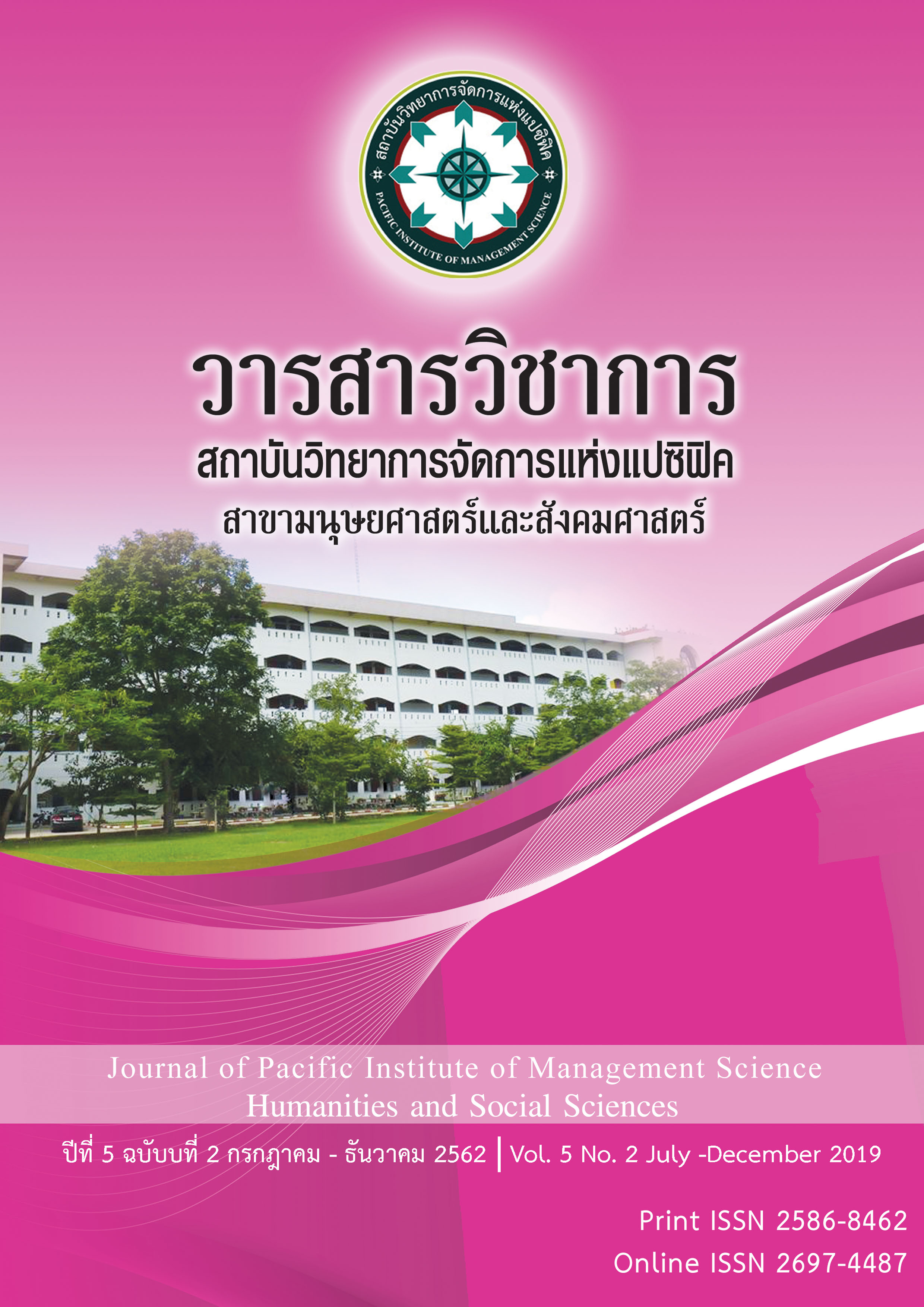The Importance of Regional Language Equality Balance in Enhancing Peacebuilding among Theravada Buddhist Countries: A Case study of Myanmar, Lao PDR, and Cambodia
Keywords:
Regional Language, Equality Balance, Peacebuilding, Theravada Buddhism, Cambodia, Lao PDA, Myanmar, CommunicationAbstract
ASEAN Political-Security Community (APSC) has goals to share responsibility for comprehensive security in cohesive, peaceful, stable, and resilient region, especially to strengthen research activities on peacebuilding. The diversity of culture in ASEAN is one reason to increase the conflict in our region. This study explores and investigates the issues in using regional language equality balance is important to enhance the peacebuilding among Theravada Buddhist Countries.
This qualitative research uses phenomenological approach methodology which was observed with Myanmar, Lao and Cambodian Theravada Buddhists real-life environment over period of four years (2014-2018). The findings result from qualitative analysis of that data addresses issues in activity projects among Buddhist people by using various Science of Management. In the cases, Wat Bo school in Cambodia; Buddhist Laities from Pakse in Lao PDA and ethnic groups of Buddhist volunteers in Kengtung, Myanmar are pilot projects which reflect the harmony of Buddhist in ASEAN originate from the Buddhist ritual activity cooperation. Communication is the first approach result to reach the peacebuilding process, especially, using regional language equality balance in the meaning, alphabet letter, and culture
balance which are practically considered and affected to the peace strategy in ASEAN.
References
Adler, Emanuel and Barnett, Michael eds. (1998). Security communities. New York: Cambridge University Press.
Amitav Acharya. (2001). Constructing a Security Community in Southeast Asia. New York: Routledge.
Anbari, F. T., Khilkhanova, E. V., Romanova, M. V., & Umpleby, S. A. (2003). Cross cultural differences and their implications for managing international projects. Retrieved From http://www.gwu.edu/umpleby/recent_paper/2003_cross_cultural_differences_managin_international_progects_anbari_khilkhanova_um;leby. Htm.
ASEAN Secretariat (2015). ASEAN Political-Security Community Jakarta. Retrieved from http://asean.org/storage/2012/05/8.-Fact-Sheet-on-ASEAN-Political-Security-Community-APSC.pdf
Cohen, Abner (1974) Two-Dimensional Man: An Essay on the Anthropology of Power and Symbolism in Complex Society. Berkley: University of California Press.
Demson, Ekong & Amalu, Nneka Sophie. (2017). Indigenous Symbols and their Communicative Implications for Conflict Management and Peace Building amongst the Igbo, Nigeria (1900-2016). Journal of Integrative Humanism. Volume 8. No. 1. pp. 49-59.
Deutsch, Karl W.; Burrel, Sidney A.; and Kann, Robert A. (1957). Political Community and the North Atlantic Area; International Organization in the Light of Historical Experience. Princeton: Princeton University Press.
Government complex of Nong Khai (2013) Access to http://202.28.118.8/nk2015/web/site/view?id=726 Hofstede, Geert. (2001). Culture's consequences: Comparing values, behaviors, institutions, and organizations across nations, second edition. Thousand Oaks, CA: Sage Publications, Inc.
Keyton, J. (2011). Communication and organizational culture: A key to understanding
Mpangala, G.P. (2004). Origin of political conflict and peace building in the Great Lakes region. Paper presented at the symposium "Ramifications of Instability in the Great Lakes Zones", organized by the Command and Staff College, Arusha, Burundi, February 23, 2004.
Trompenaars, Fons & Hamden-Turner, Charles (1998). Riding the Waves of Culture: Understanding diversity in global business (2nd Ed). McGraw-Hills Companies. Wilmot, W. & Hocker, J. (2011). Interpersonal Conflict. 1st ed. New York: McGraw-Hill. work experience. Thousand Oaks, CA: Sage.
Interviews
Ruttanawanno, Phrakhru J. (2013, October 20) Personal Interview.
Teacher A (2016, January 16). Personal interview.
Vice Abbot, S. (2014, November 10). Personal Interview.
Downloads
Published
Issue
Section
License
บทความที่ได้รับการตีพิมพ์เป็นลิขสิทธิ์ของ สถาบันวิทยาการจัดการแห่งแปซิฟิค
ข้อความที่ปรากฏในบทความแต่ละเรื่องในวารสารวิชาการเล่มนี้เป็นความคิดเห็นส่วนตัวของผู้เขียนแต่ละท่านไม่เกี่ยวข้องกับสถาบันวิทยาการจัดการแห่งแปซิฟิค และคณาจารย์ท่านอื่นๆในสถาบันฯ แต่อย่างใด ความรับผิดชอบองค์ประกอบทั้งหมดของบทความแต่ละเรื่องเป็นของผู้เขียนแต่ละท่าน หากมีความผิดพลาดใดๆ ผู้เขียนแต่ละท่านจะรับผิดชอบบทความของตนเองแต่ผู้เดียว







